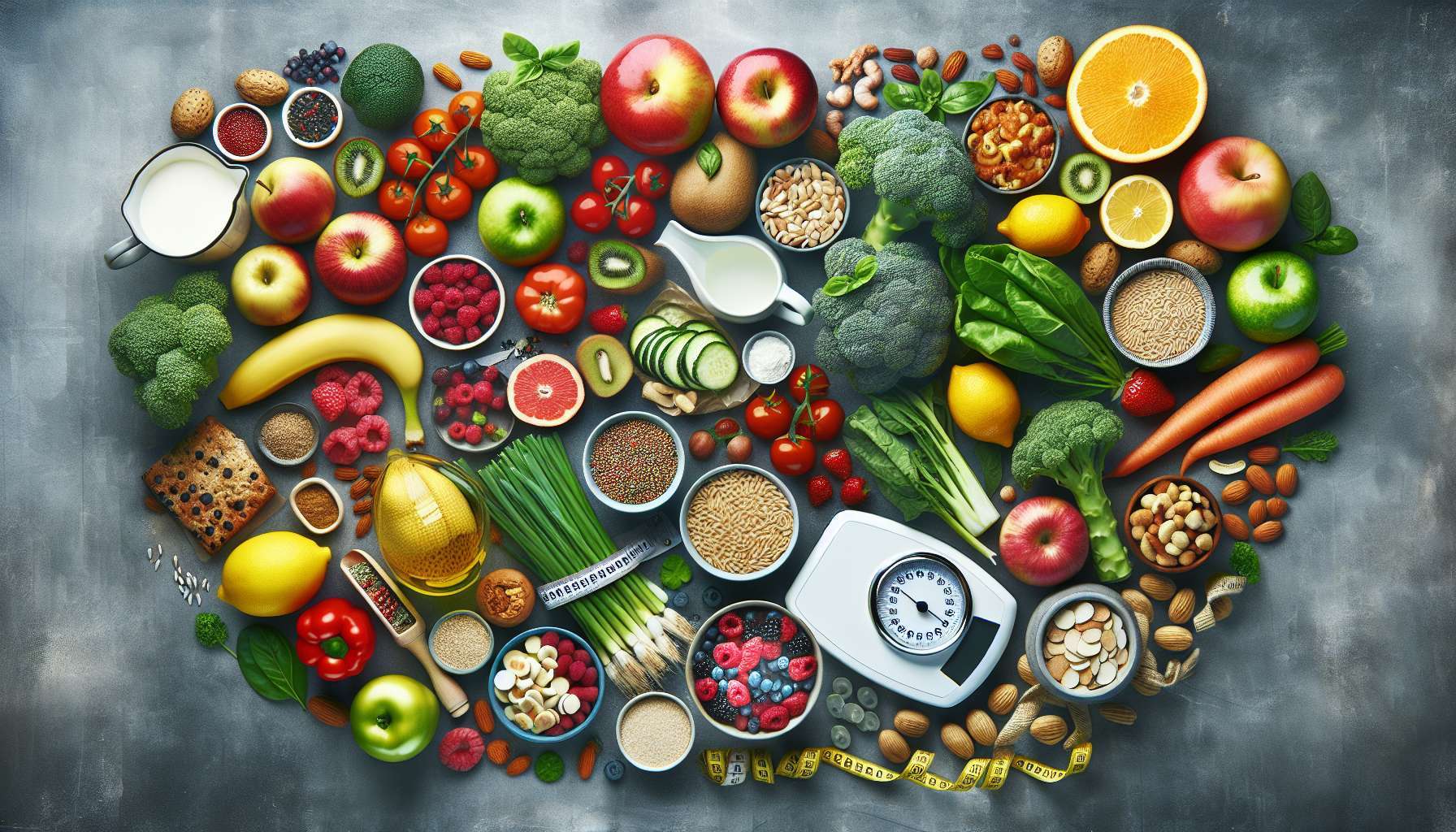The Ultimate Guide to a Healthy Diet
When it comes to living a long and healthy life, maintaining a balanced and nutritious diet is key. A healthy diet not only helps to prevent chronic diseases and improve overall well-being but also plays a crucial role in boosting energy levels, supporting weight management, and enhancing mental clarity. In this comprehensive guide, we will delve into the various aspects of a healthy diet, exploring its benefits, components, and practical tips to help you make informed choices about the food you eat.
What is a Healthy Diet?
A healthy diet is one that provides the body with essential nutrients necessary for optimal function while also supporting overall health and well-being. It consists of a variety of foods from all the major food groups, including fruits, vegetables, whole grains, lean proteins, and healthy fats. A healthy diet is rich in vitamins, minerals, fiber, and antioxidants, and is low in saturated fats, trans fats, cholesterol, sodium, and added sugars.
But what exactly does a healthy diet look like in practice? While there is no one-size-fits-all approach to healthy eating, incorporating a wide range of nutrient-dense foods into your daily meals is a good place to start. This means filling your plate with colorful fruits and vegetables, whole grains like brown rice and quinoa, lean proteins such as chicken, fish, and tofu, and heart-healthy fats like avocados, nuts, and olive oil.
The Benefits of a Healthy Diet
The benefits of a healthy diet go far beyond just weight management. Eating a variety of nutrient-rich foods can help prevent a range of chronic diseases, including heart disease, diabetes, and cancer. A healthy diet can also boost your immune system, improve digestion, and enhance cognitive function. Additionally, maintaining a balanced diet can help you maintain a healthy weight, reduce inflammation in the body, and promote overall longevity.
Research has shown that individuals who follow a healthy diet are less likely to develop chronic diseases such as type 2 diabetes, hypertension, and certain types of cancer. By fueling your body with the right nutrients, you can lower your risk of developing these conditions and improve your overall quality of life.
Components of a Healthy Diet
There are several key components that make up a healthy diet. These include:
Fruits and Vegetables
Fruits and vegetables are rich in essential vitamins, minerals, and antioxidants that help protect the body from disease and promote overall health. Aim to fill half your plate with fruits and vegetables at each meal to ensure you are getting an adequate intake of these important nutrients.

Whole Grains
Whole grains such as brown rice, quinoa, oats, and whole-wheat bread are rich in fiber, vitamins, and minerals. They help regulate blood sugar levels, promote digestive health, and reduce the risk of heart disease. Choose whole grains over refined grains whenever possible to maximize their nutritional benefits.
Lean Proteins
Lean proteins like chicken, fish, tofu, and legumes are essential for building and repairing tissues, as well as maintaining muscle mass. They also provide a source of energy and help you feel full and satisfied after meals. Incorporate a variety of protein sources into your diet to ensure you are getting all the essential amino acids your body needs.
Healthy Fats
Healthy fats, such as those found in avocados, nuts, seeds, and olive oil, are important for brain function, hormone production, and cell structure. They also help reduce inflammation in the body and support heart health. Include a moderate amount of healthy fats in your diet to reap their many benefits.
Dairy and Alternatives
Dairy products like milk, yogurt, and cheese are excellent sources of calcium, vitamin D, and protein. If you are lactose intolerant or vegan, you can opt for dairy alternatives like almond milk, soy yogurt, and cashew cheese. Choose low-fat or non-fat options to reduce your intake of saturated fats and cholesterol.
Hydration
Staying hydrated is essential for overall health and well-being. Water helps regulate body temperature, transport nutrients and oxygen to cells, and remove waste products from the body. Aim to drink at least 8-10 glasses of water per day, and more if you are physically active or live in a hot climate.
Expert Opinions
According to nutrition experts, a healthy diet is the foundation of good health and should be prioritized over fad diets or quick fixes. Registered dietitians recommend focusing on whole, minimally processed foods and listening to your body’s hunger and fullness cues. They also emphasize the importance of moderation and balance in all aspects of eating, including portion sizes and food choices.
Common Misconceptions
One common misconception about healthy eating is that it has to be expensive or time-consuming. In reality, healthy eating can be affordable and convenient with proper planning and preparation. Another misconception is that healthy foods are bland or boring, but with the right herbs, spices, and cooking techniques, you can create delicious and nutritious meals that satisfy your taste buds.
Comparative Analysis
When comparing a healthy diet to other popular diets like keto, paleo, or vegan, it’s important to consider the long-term implications on health and sustainability. While these diets may have their benefits, they may also be restrictive in certain nutrients or food groups. A healthy diet, on the other hand, focuses on balance and variety, making it a more sustainable approach to eating for the long term.
Conclusion
To wrap things up, a healthy diet is essential for overall health and well-being. By incorporating a variety of nutrient-rich foods into your daily meals and staying hydrated, you can support your body’s optimal function and reduce your risk of chronic diseases. Remember, healthy eating is not about perfection but rather making small, sustainable changes to your diet over time. Start by setting realistic goals and gradually incorporating healthier choices into your routine. Your body will thank you for it in the long run!




